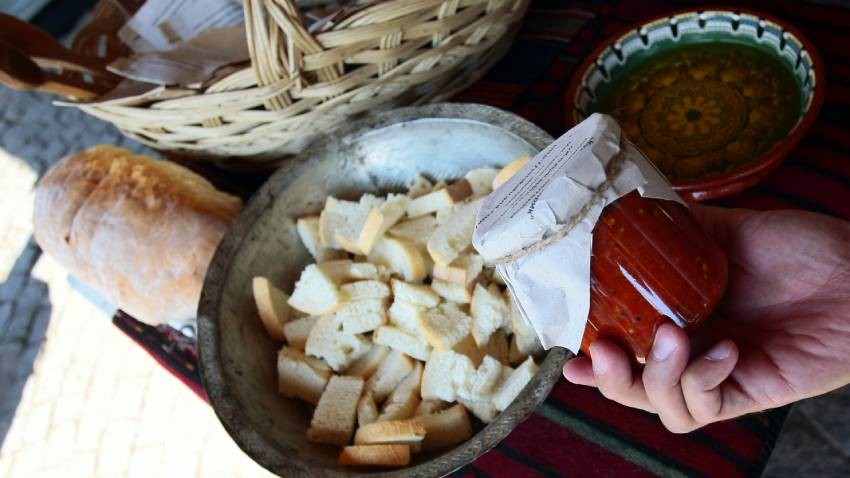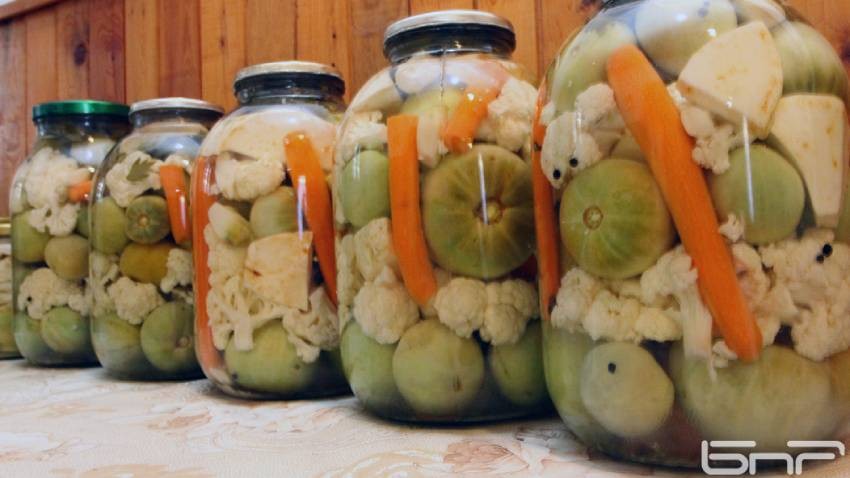Autumn is usually the best season for canning vegetables. In Bulgaria they are abundant at this time and their prices are relatively affordable. The tradition of storing fruits and vegetables for the winter is especially relevant now, when uncertainty about the future reigns and all the media warn that hard times are coming. And Bulgarians do not like surprises at all. They always make sure they have something stashed away for a rainy day. Since the end of September the prices of sweet red peppers and bell peppers have started to go up, Roma tomatoes for canning last year sold for EUR 0.50, and now they cost more than twice as much. Ready-canned fruit and vegetables, which are the second-best to home-made produce, are also barely affordable for the average household.
According to State Agency of Goods Exchange and Market-Places (SAGEMP), the auction price index has gone up by 31 per cent year-on-year, but that is not stopping people from canning and stockpiling for the winter, though in smaller quantities than usual, SAGEMP data show. And while years ago homemade pickles were prepared according to old family recipes to spice up the menu in winter, now they are seen more as a means of survival in the economic and political chaos in Bulgaria.

Capital residents, who in recent years have enjoyed the abundance of produce on offer at farmers' markets, are now also rolling up their sleeves to prepare liutenitsa (delicious chutney-like paste made of red peppers and tomatoes) and pickles for the winter.
Among the most popular autumn specialties are roasted sweet red peppers and bell peppers, chili peppers and, of course, Tsarska turshia ("Royal Pickle"), made from several varieties of peppers, cabbage, celery, cauliflower, carrots and green tomatoes. The latter, with its crunchy sweet and sour taste, combines a whole range of probiotics, prebiotics and vitamins - a failsafe defence against the 'trendy' virus strains. Pickles are the most energy-efficient to prepare, in terms of electricity, as they are neither boiled, nor roasted, but left to ferment. More time and energy consuming vegetable delights, such as lyutenitsa, are becoming increasingly unprofitable for home production, unless cooked on a wood-burning stove in an old village kitchen.
On the other hand, because of the year-round abundance of fruits and vegetables, fresh salads are an increasingly common part of the menu of Bulgarians, so people prepare less and less canned food for the winter. This year, however, around 80-90% of the country's greenhouse vegetable producers have not planted their winter produce. They point to the price of gas, pellets and electricity, which have risen three to four times and to the uncertainty for the future, as the reason. In order to avoid possible bankruptcies and production going to waste, producers have chosen not to take any risks this time.

And Bulgarians, who are slowly forgetting the taste of home-grown vegetables, will be forced, assuming of course their means allow, to buy tomatoes from Turkey and Greece, and lyutenitsa from Serbia and Macedonia.
English version: Elizabeth RadkovaPhotos: BGNES, BNR - library
Bulgaria is the country with the lowest prices of basic fuels in the EU – petrol and diesel, data show. Yet, as the date of the expected adoption of the single European currency, the Euro, as of 1 January next year draws nearer, people’s fears seem to..
Yana Todorova is a tour guide and teacher. Since 2019, she has been a member of the Association of Tour Guides in Bulgaria, but has been working as such since 2006. She uses every opportunity to do so today, especially within the framework of the..
At the end of the past week, 53 children from 21 Bulgarian Sunday schools participated in the ninth edition of the international reading competition in Bulgarian "Az Buki Vedi" for first and second grade students, which took place in..
The consulates of a country abroad are usually seen simply as the place where citizens go when they need assistance—whether to obtain documents or resolve..
One of Bulgaria's longest-running summer festivals takes place in Primorsko , a resort town on the Black Sea coast. Over the next three months, Prim..
Croatia advises its nationals to postpone non-essential travel to Serbia Croatia’s Ministry of Foreign Affairs has advised Croatian nationals..

+359 2 9336 661
